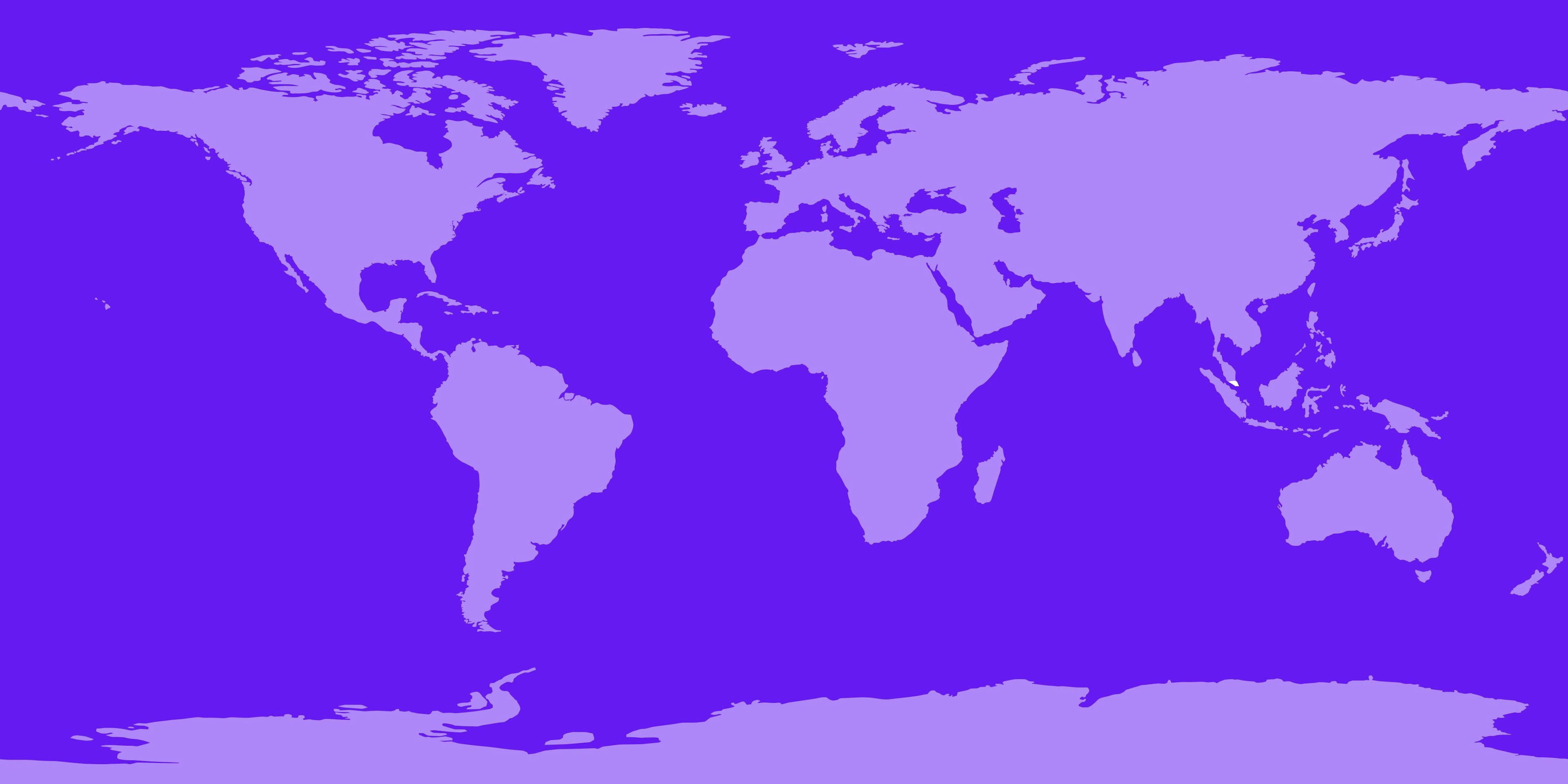シンガポールで成功した企業であれば、国際的なビジネスチャンスを検討する時期かもしれません。 ヨーロッパは素晴らしい出発点となるでしょう。 ヨーロッパの747.8人口百万は、企業が活用できる複数の 有望な市場を提供しています。 シンガポールとヨーロッパは貿易基準の共有にコミットしており、欧州連合(EU)は東南アジア諸国連合(ASEAN)の主要な貿易相手国です。
世界規模で会社を成長させることを検討する際は、英国、オランダ、フランス、ドイツ、ロシアなど、 シンガポールを拠点とする企業にとって最高のヨーロッパ諸国を検討する必要があります。 また、ビザの要件と、各国でコンプライアンスを遵守してビジネスを行うために会社が取るべき手順を理解している必要があります。
ヨーロッパがシンガポールを拠点とする企業にとって良い場所である理由は何ですか?
EUは世界最大の単一市場であり、27各国、EU 446に100万人、67.1英国に100万人ほどの人々がいます。 ASEANは世界で最も強力な経済力の1つでもあり、160000万人以上が市場を構成し、105.450万人がシンガポールにいます。
シンガポールは、EUで3番目に大きいアジアの投資家であり、ASEAN最大の貿易相手国であり、14,000ヨーロッパを拠点とする以上の企業の本拠地です。 EUは、輸出入の両方でシンガポールで2番目に大きい貿易相手国であり、過去10年間で貿易は指数関数的に増加しています。 機械、車両、化学物質、およびその他の製造品は、地域間の輸出入の最も重要な源泉です。
両地域は、環境保護、健康と安全の規範、労働基準、 研究開発に取り組んでいます。 Covid-19 パンデミックの間、EUとシンガポールは自由貿易へのコミットメントを維持し、この期間に貿易が減少した後の回復への忠誠を続けています。
また、この地域は、オープンな貿易を強化するための複数の合意を享受している。 年に施行された欧州連合・シンガポール自由貿易協定(EUSFTA) は2019、EUとASEAN加盟国の間で初めて締結された協定です。
EUSFTAは、以下の分野における取引を容易にするために市場アクセスを改善します。
- サービスと商品
- 安全ラベルの認識
- 税関手続きの迅速化
- 知的財産契約
- 環境保護
- 労働権
協定の最終的な目標は、ほぼすべての関税をによって引き上げることです2025。
もう1つの協定は投資保護協定であり、条約を更新し、投資家に公正な扱いを与え、紛争を解決するためのシステムを確保し、政府が法律や政策を更新できるようにすることで、投資家を保護し奨励します。
シンガポールを拠点とするビジネスをヨーロッパに拡大すると、次のようなさまざまなメリットが得られます。
- 新しい市場とつながる能力
- 経済成長
- 多様なサプライチェーン
- グローバル人材へのアクセス
- 優遇関税
- 政府調達の機会
- グローバルなブランド認知度
シンガポールを拠点とする企業にとってヨーロッパのトップ国は何ですか?
シンガポールを拠点とするビジネスを拡大するために最高のヨーロッパ諸国を検討する場合、 国際的な政治関係、貿易同盟、各地域のトップ産業を考慮する必要があります。 EU加盟国には、オランダ、フランス、ドイツが含まれます。 したがって、これらの拠点にはEUSFTAの 恩恵が与えられます。 その他の成長の可能性のある分野には、英国とロシアが含まれます。
1. 英国
英国は、法律、会計、政治システムを共有することで、シンガポールを拠点とする企業に複数のビジネス機会を提供しています。 ブレグジットの後、両国は、特定の関税を削減または撤廃する英国-シンガポール自由貿易協定に署名し、英国にEUSFTAと同じ利益を与える。

英国はヨーロッパ最大の電子商取引市場です。 シンガポールは最近、両国間の電子商取引を促進するため、ロンドンにシンガポールのEコマース企業開発オフィスを開設しました。 デジタルマーケティング、フルフィルメント、ロジスティクスの企業は、英国での成長から恩恵を受ける可能性があります。
シンガポールはまた、英国との デジタル経済協定 、すなわち欧州で最初のデジタル協定を実施する予定です。 パンデミックにより、企業はデジタル化の重要性を認識しているので、両国間の潜在的な合意は適時です。 英国との協定 は、サイバーセキュリティのような技術産業の成長を促進するために、安全でオープンなデジタル貿易市場を提供するでしょう。
デジタル技術は英国のトップ産業です。 人工知能、クラウドコミュニケーション、サイバーセキュリティ、データ管理、およびワークフォーストレーニングイニシアチブの企業は、この国で成功を収めることができます。 電子決済サービス、資産管理プラットフォーム、会計および保険ソフトウェア、データ分析を含むフィンテックも、大きな機会を提供しています。 両国 はすでにFintech Bridge Alliance の一部であり、主要な業界のステークホルダーと共通の規制とつながりを確保しています。
テクノロジー以外にも、ライフスタイルやファッション 業界の企業は、英国に成長することで繁栄することができます。
2. オランダ
ヨーロッパで5番目に大きな市場 であり、ヨーロッパの一元的な拠点であるオランダは、シンガポールを拠点とする企業の戦略的パートナーです。 オランダはまた、EUにおけるシンガポールの第3位の貿易相手国であり、両国は自由貿易を享受している。 オランダの労働力は多言語に対応しており、高学歴であり、オランダはイノベーションのハブです。 研究開発、科学、技術、政府をサポートするデジタルインフラストラクチャを開発しています。
生命科学、健康、医療技術の企業は、オランダが医療業界の世界的リーダーであるため、オランダで繁栄するでしょう。 オランダには多くの官民パートナーシップがあります。 この地域には、12研究機関、82病院、技術やデバイスの早期採用など、ヨーロッパ諸国で一貫して高い地位を占める医療システムもあります。
オランダのマーケットプレイスは、2021グローバルイノベーションインデックスで上位10国にランクインし、イノベーションもサポートしています。 オランダは、シンガポールを拠点とするテクノロジースタートアップにとって最高のヨーロッパの国の1つであり、 StartupDeltaのような多くのコワーキングスペース、イニシアチブ、サポートがあります。
物流および輸送業界の企業は、国の堅牢なインフラと2つの主要なヨーロッパの貨物港、スキポール空港とロッテルダム港を利用することができます。 政府は、交通の流れを改善し、輸送の持続可能性を高めるために、スマートモビリティシステムに投資しています。 オランダは EUで2番目に大きな輸出国であり、食品と医薬品がトップの輸出国です。
3. フランス

シンガポールは 、フランスの東南アジアの貿易相手国です。 両国間の貿易は近年増加を続けており、ほぼ2,000フランスを拠点とする企業がシンガポールに拠点を置いている。 この国には、 67.4百万人の人々がいる広範な市場があります。 その高度な輸送インフラと高速ネットワーク接続 により、ヨーロッパの他の地域にも簡単にアクセスできます。
年に2016、各国はフランスとシンガポールのイノベーション年2018になると発表しました。 このイニシアチブは、国家間の科学的および技術的関係を強化することを目的とした。 6つのセクターが合意で概説された。
- スマートで持続可能な都市
- フィンテック
- 老化とバイオテクノロジーを含む健康と生命科学
- 航空宇宙部門を含む先進的な製造
- スタートアップと新興テクノロジー
- 継続的な専門能力開発を含む教育
両国とも、世界的なCovid-19パンデミック後の回復に専念しています。 彼らは農業と食糧貿易への新たな献身を発表しました:フランスのトップ産業。 同国は、農業食品貿易の利害関係者が協力し、製品移動を促進することを奨励している。
フランスの他のトップ産業には、航空宇宙、自動車、製薬が含まれます。 フランスは、航空機、ヘリコプター、戦闘機、ビジネスジェットを輸出する世界2か国のうちの1つであるため、航空宇宙製造部門の企業 にとって特に優れた市場です。 首都パリには、 アエロマート・トゥールーズやインターナショナル・パリ・エアショーなど、数多くの国際航空見本市があります。
フランスは、シンガポールを拠点とするスタートアップ企業にとってヨーロッパでも最高の国の一つです。パリにある ステーションFは、世界最大のスタートアップセンターです。 センターの企業の約4分の1は国際的に所有されています。 キャンパスは、ワークショップ、行政サービス、住宅で起業家をサポートしています。
4. ドイツ
ドイツはヨーロッパ最大の経済国であり、GPDはUSD5.2兆 、 市場規模は83.2百万です。 国際特許の割合は世界一高く、100万人当たりの227国際特許数も多い。
ドイツのよく接続された輸送システムと中央の場所は、企業がヨーロッパの他の地域に簡単にアクセスできるようにします。 出荷時間が極めて重要であるため、この場所はeコマースの企業にとって理想的です。 同国は、物理および電子インフラも絶えず改善し、光ファイバーを拡張し、モバイル通信を強化5Gしています。
製造業はドイツ経済の約4分の1を占めている。 先進的な製造、すなわちIndustry は4.0、リソースの使用を最適化しながら、セクターの生産性を向上させました。 自動車、化学、機械、電気機器製造業の企業は、ドイツへの拡大を検討する必要があります。
同国はまた、世界第3位の医療技術輸出国である。 しかし、ドイツは400,000医者を持つ2,000病院をほぼ受け入れているため、医療機器の輸入業者として依然として重要な存在です。 政府は現在、デジタルヘルスケア法を通じて医療のデジタル化と国の遠隔医療能力の拡大を推進しています。
同国はEUSFTAの一部であり、 ドイツ起業家精神アジア (GEアジア)も、シンガポールを拠点とするスタートアップをドイツに設立する計画だ。 このプログラムは、すでに東南アジアの115ドイツのスタートアップ社以上を支援しています。 GEアジアは、ミュンヘンとベルリンでスタートアップ企業を設立Scaler8 する支援をします。
その他の受益契約には、両国に居住する従業員が所得税を2回支払うことを禁止するシンガポール・ドイツ二重税回避協定、および ドイツ・シンガポール二国間投資条約(BIT)が含まれます。 BITは、投資家が公平に扱われることを保証します。 投資家は紛争請求を発行し、資本とリターンの自由な移転を可能にします。
5. ロシア
シンガポールとロシアは50、年以上にわたって外交関係を共有してきた。 両国は年に共同声明を発表し2009、特に科学、技術、通信の各分野において、経済、政治、文化に関する共通の目標への献身を確認した。 さらに、両国は、経済協力を強化2006するためにロシア特別経済圏を設立した。
人口144.1100万人、GDP1USD2兆人で、ロシアは世界最大の市場の1つです。 ロシア経済は、近年、石油市場の激動やCovid-19パンデミックによる景気後退にもかかわらず、安定している。 両国はすでに貿易協力を享受しており、 500ロシアを拠点とする以上の企業が シンガポールで事業を展開している。
ロシアには、ヨーロッパとアジアの市場の両方にアクセスできる戦略的な場所もあります。 同国は、アルメニア、ベラルーシ、 カザフスタン、キルギスタンとの自由貿易同盟であるユーラシア経済連合の一部である。
同国は世界最大の石油・ガス生産国の一つであり、世界最大の鉱物資源とエネルギー資源を保有している。 ロシア経済は食料や衣服などの消費財にも大きく依存している。 住民は高品質の製品を低価格で評価しています。 しかし、顧客のさまざまな好みに最も適した消費者製品を決定する前に、徹底した市場調査が不可欠です。
技術も成長の分野です。 モスクワにはスコルコヴォ・イノベーション・センターがあり、人以上の20,000永住者が住む自称科学都市です。 センターには、以下のような 分野で複数の研究目標があります。
- 省エネ
- 情報技術
- 新興の生物医学技術と医薬品
- 原子力技術
- 宇宙技術
ロシアは、eコマース、研究開発、技術の急成長により、シンガポールを拠点とするスタートアップにとって最高の場所です。
ETIASビザの要件は、シンガポールからヨーロッパへの旅行にどのように影響しますか?
EUは、国境を守るために、欧州旅行情報・承認システム(ETIAS)ビザ免除プログラムを作成しました。 主な目的は、シェンゲン圏諸国への訪問者に関連する脅威を検知することです。 シンガポールの居住者 は、EU にビザなしで渡航できますが、180-dayヨーロッパを訪問2022する場合は、期間内の最大90日間、年末までにETIAS渡航認証を取得する必要があります。 フランスに旅行するシンガポール人は、最大3ヶ月まで訪問することができます。

ETIASオンライン申請を完了するには、有効なパスポート、Eメールアドレス、申請手数料を支払うためのデビットカードまたはクレジットカードが必要です。 アプリケーションには、旅行情報と個人情報が必要です。 また、応募者は、自身の健康、犯罪歴、最近の紛争地帯への旅行に関するセキュリティ上の質問に回答する必要があります。
一部の ETIAS アプリケーションでは、自動処理に数分しかかかりませんが、手動処理によるさらなる検証が必要なアプリケーションもあります。 ヨーロッパに出発72する前に、ETIASの認可を受ける必要があります。 承認は、更新が必要になる前の3年間有効です。
チームメンバーがシェンゲン協定加盟国に居住し、勤務 することを希望する場合は、その国の大使館または領事館で直接申請してシェンゲン協定ビザを取得する必要があります。 2ページ以上の空白のパスポート、パスポート写真、申請書、以前の申請書のコピーを持参する必要があります。 申請プロセスには、支払い、往復フライト予約、有効な健康保険、シェンゲン協定加盟国での居住に必要な十分な資金の証明が必要です。 ビザは、シングル、ダブル、または複数エントリーです。
ロシアと英国はシェンゲン圏の一部ではないため、これらの国で会社を成長させる予定がある場合は、それぞれの旅行要件を確認してください。 また、従業員がビザなしで海外会社に勤務できるように、リモートチームの採用を検討することもできます。
シンガポールを拠点とする企業は、ヨーロッパの成長に何を必要としていますか?
シンガポールのヨーロッパへの事業拡大を検討する際、あなたは以下を行う必要があります。
- あなたの会社を評価する:まず、あなたの会社が国際的な成長のための収入と安定性を持っているかどうかを決定する必要があります。 貴社は、新しいオフィススペース、輸送、機器、専門サービスの費用を賄うために十分な利益を得る必要があります。 場所によって価格が異なるため、いくつかの国で運用コストを調査する場合があります。 所得税、売上税、生活費、借入費用などを考慮する必要があります。 会社の運営とステークホルダーを見直すことは、国際的な拡大戦略の構築に役立ちます。
- 市場調査を実施する:新しい国に会社を設立 する前に、製品やサービス の市場があることを確認してください。 地域の人口統計、市場規模、および競争を調査します。 また、望ましい人口統計を確実に達成するために、国際的なマーケティング戦略を作成する必要があります。
- グローバルチームの構築:最初から強力な従業員を採用することは、国際的な成長にとって不可欠です。 新しいチームメンバーが快適でサポートを受けられるように、 文化的な能力の構築に重点を置く。
- 法的要件を理解する:労働法は国によって異なります。 グローバルな記録的雇用者 は、給与、従業員給付、所得税、その他の分野をナビゲートし、どこにいてもコンプライアンスを維持することができます。
シンガポールを拠点とするビジネスがヨーロッパに進出するのを支援するGlobalization Partners
Globalization Partners、ヨーロッパやその先で成長する企業をサポートできます。 当社のGlobal Employment Platformは、オンボーディング、給与、および雇用の複雑性を合理化および自動化し、各国固有の法律へのコンプライアンスを維持します。 グローバルチームを構築する際にコンプライアンスを維持する方法について、今すぐお問い合わせください。または、提案をリクエストしてください。











